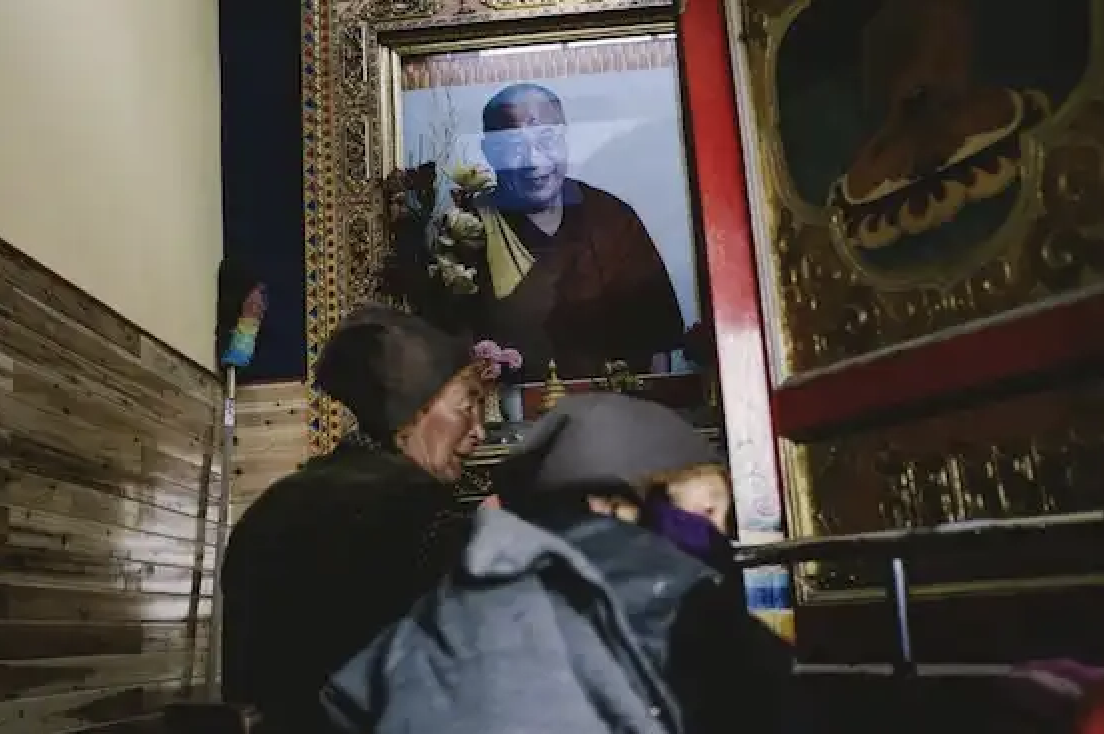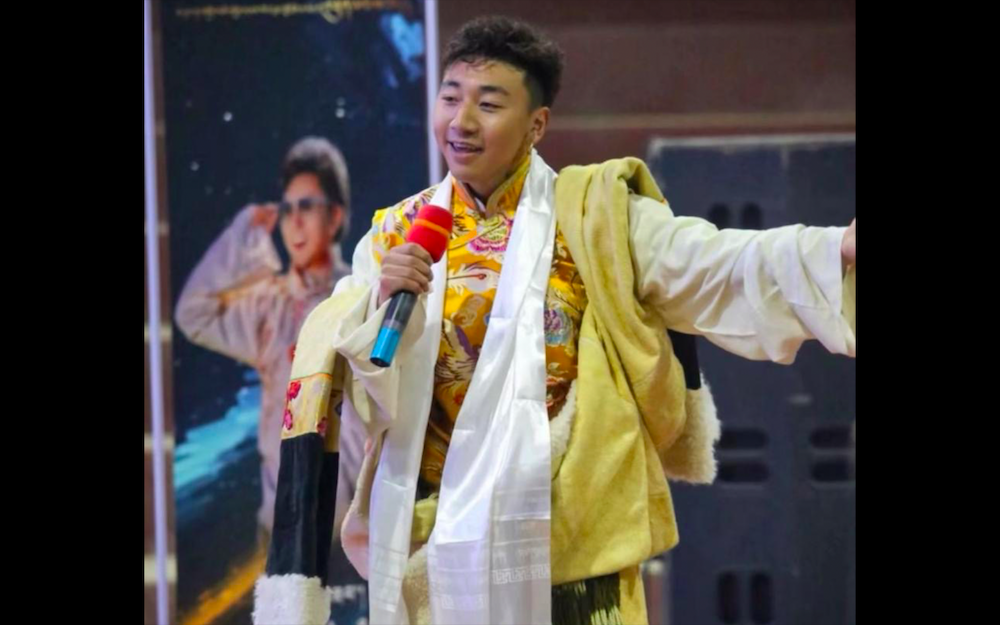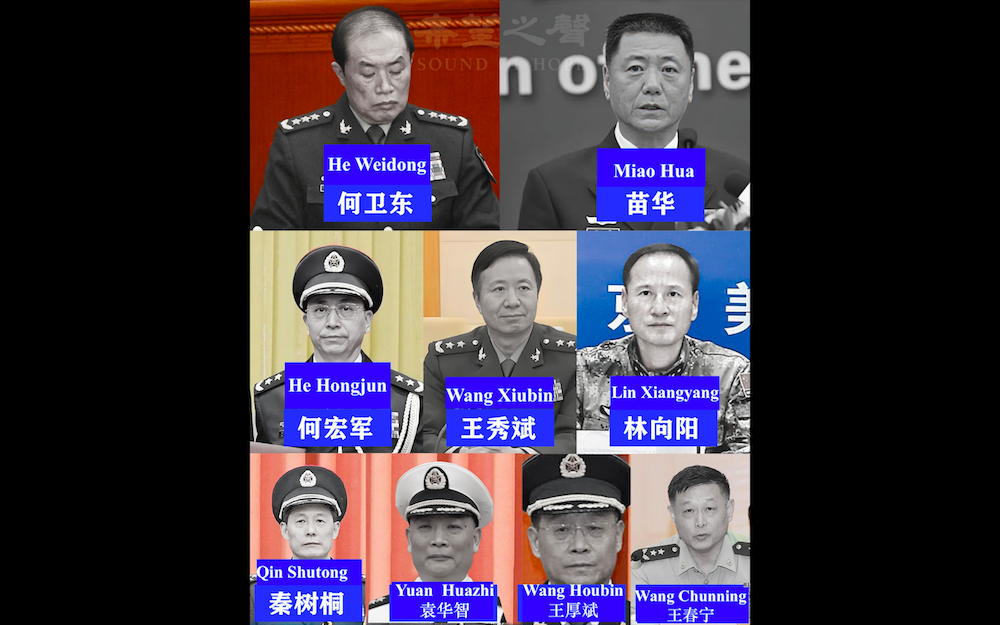By Thomas Laird
May 11, 2005
On May 9, 2005 People’s Daily, (Xinhua) published an article in which a Tibetan “foreign affairs official” of the PRC, “Pa Sang”, claims to have guided Mr. David Dorman Chairman of the US Congressional-Executive Commission on China, through Tibet in 2000. The article says “Pa Sang” was recently “awarded a prize for being one of China’s ten outstanding foreign affairs officials.” The article also says ” The foreign office not only objectively and truthfully presents what has been going on in Tibet .(to visiting foreign officials). but also does its best to meet their requests and helps them acquire the comprehensive and true information about Tibet.”
Oddly enough Mr. Dorman denies visiting Tibet in 2000 and denies saying anything attributed to him by China’s foreign office.
The article claims that:
“In the year 2000, Pa Sang received a United States congressional delegation, which used to have close contacts with the Dalai Lama group. After going amid grassroots units in Tibetan society to see things by themselves and inspecting some religious sites, they came to recognize that a lot of information the Dalai Lama provided to the US Congress did not stand close scrutiny.”
“David Dorman, a member of the delegation, said what he personally witnessed in Tibet didn’t accord with what he heard before. Along with its rapid economic advancement, he said, China is attaching great importance to the administration of the country by law, and its legal system kept improving.”
However, Mr. Dorman’s office said, when contacted, that:
“The Xinhua article is erroneous in at least two ways: first, Dr. Dorman did not visit Tibet in 2000; second, Dr. Dorman has not granted press interviews before, during, or after any of his previous visits to the Tibet Autonomous Region and Tibetan areas in other Chinese provinces. In any case, he has never expressed the views attributed to him in this article.”
Here is the entire article from Xinhua along with the full text of the letter from Mr. Dorman’s office.
Tibet’s development is changing foreigners’ attention, says liaison official
http://english.people.com.cn/200505/09/eng20050509_184184.html
May 9, 2005
Foreigners who had come to tour China’s Tibet Autonomous Region almost had the same purpose in the 1990s, that is to call at temples and visit jails for an exchange of views with “political prisoners”. Nowadays they prefer calling on local Tibetans and seeing the improvement of their living conditions.
“Foreigners’ attention has changed a great deal along with the rapid social and economic progress of Tibet,” said Pa Sang, deputy director of protocol division of Tibet Autonomous Region’s foreign affairs office.
Pa Sang, 42, a native Tibetan woman, has received high-ranking guests from overseas and foreign reporters and done interpretation for them for 19 consecutive years. Recently, she was awarded a prize for being one of China’s ten outstanding foreign affairs officials.
The tourists from overseas, and foreign diplomats and reporters her office receives has been on rise over recent years, especially in the summer and autumn time. The foreign office not only objectively and truthfully presents what has been going on in Tibet to them, but also does its best to meet their requests and helps them acquire the comprehensive and true information about Tibet.
“At present, an increasing number of foreign guests prefer to call at local residents’ homes and see whether the long-term assistance from the central and provincial government has really improved the living livelihood and working conditions of local Tibetans,” said Pa Sang.
The topics, such as the state pivot construction projects, the youth compulsory education and the medical care for rural farmers, are alluring their attention, she added.
“Tibet autonomous region has maintained sound economic progress and momentum and local people’s living conditions have indeed changed a lot, which constitute the crucial reasons for visiting foreigners to change their attention,” Pa Sang noted.
In the year 2000, Pa Sang received a United States congressional delegation, which used to have close contacts with the Dalai Lama group. After going amid grassroots units in Tibetan society to see things by themselves and inspecting some religious sites, they came to recognize that a lot of information the Dalai Lama provided to the US Congress did not stand close scrutiny.
David Dorman, a member of the delegation, said what he personally witnessed in Tibet didn’t accord with what he heard before. Along with its rapid economic advancement, he said, China is attaching great importance to the administration of the country by law, and its legal system kept improving.
Mirroring China’s peaceful emergence, Tibet, as a Chinese autonomous region, is also actively building its image to the world, she said.
“I am convinced that along with Tibet’s opening-up, the international community will acknowledge Tibet’s development and progress, and more and more foreign businessmen will come to invest here. Dalai Lama’s advocacy of ‘Tibet independence’ will lose its market,” Pa Sang said.
EMAIL FROM DORMAN’S OFFICE
Sent: Wednesday, May 11, 2005
Subject: Thank You For Your Inquiry to the Congressional-Executive Commission on China
Thank you for your e-mail message of May 10, in which you inquired about a recent Xinhua article that was carried in the May 9 People’s Daily that purported to quote my colleague David Dorman about conditions in Tibet. I write on Dr. Dorman’s behalf, because he is on leave this week, and I did not want your inquiry to go unanswered until next week.
The Xinhua article is erroneous in at least two ways: first, Dr. Dorman did not visit Tibet in 2000; second, Dr. Dorman has not granted press interviews before, during, or after any of his previous visits to the Tibet Autonomous Region and Tibetan areas in other Chinese provinces. In any case, he has never expressed the views attributed to him in this article.
I hope this information is useful to you. Thank you again for writing the Congressional-Executive Commission on China.
With best regards,
John Foarde
Staff Director for the House Co-Chairman
Congressional-Executive Commission on China
Thomas Laird can be contacted at tlaird@bellsouth.net









